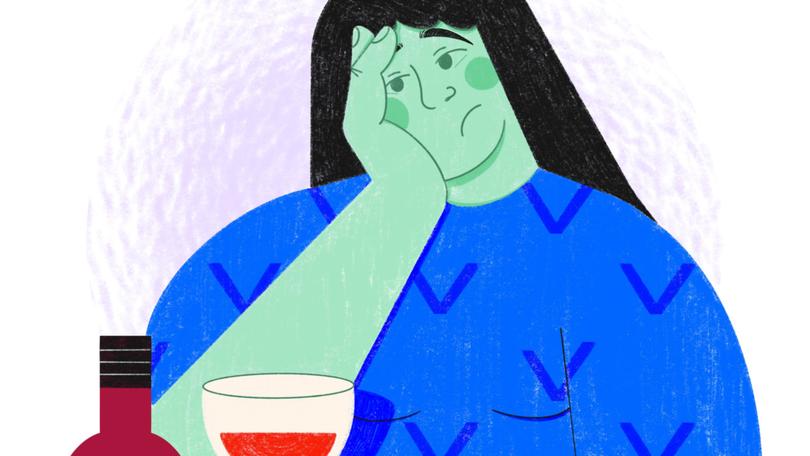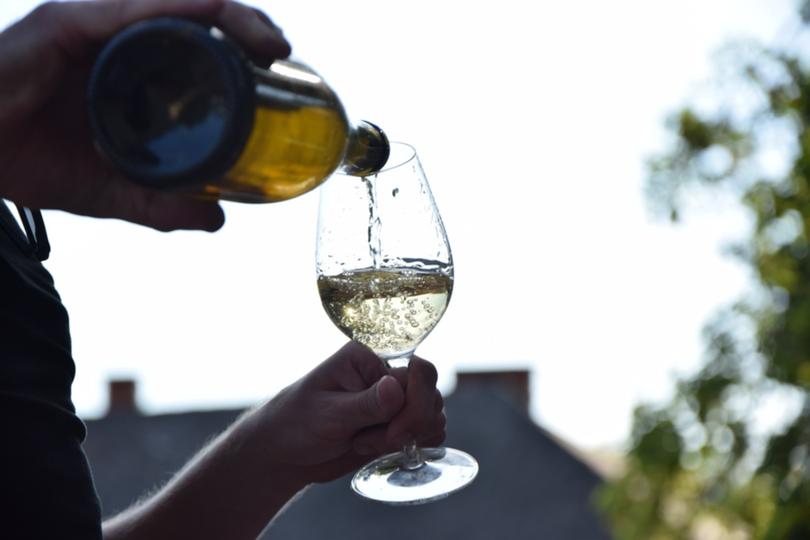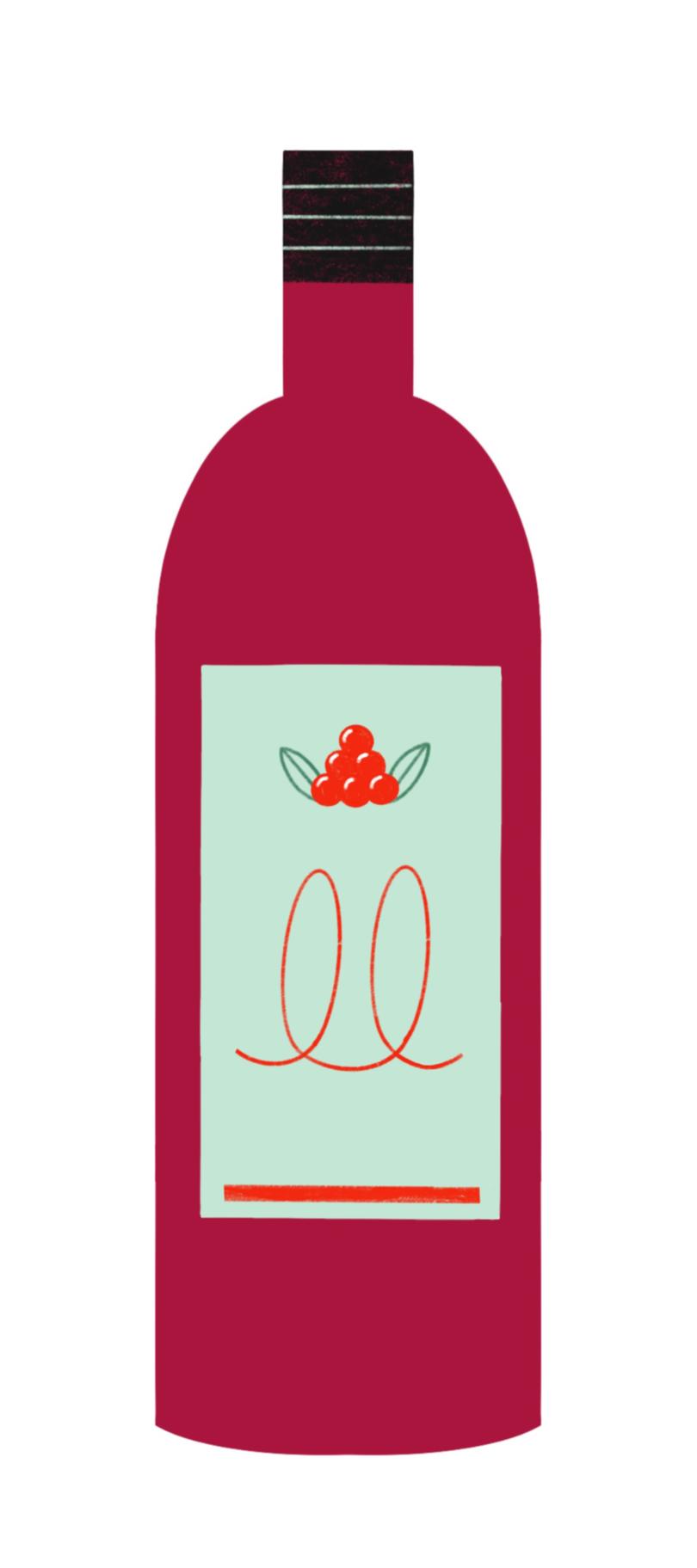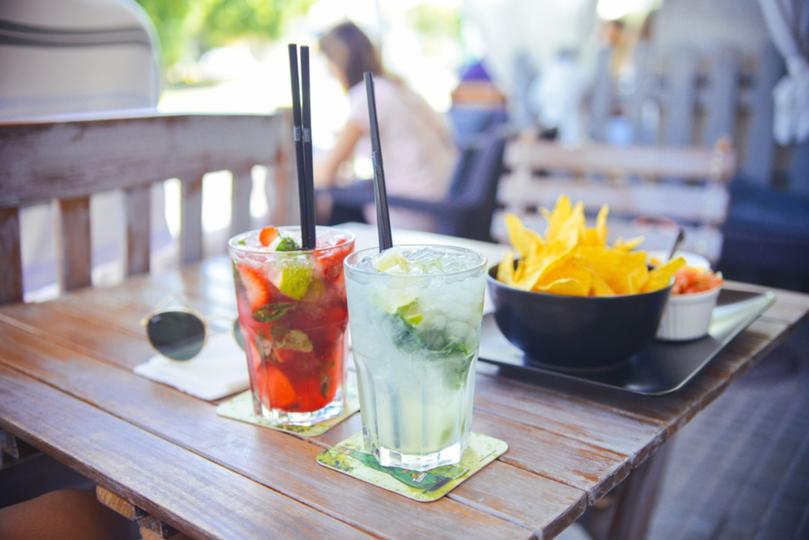Am I an alcoholic? Take this five-question quiz to find out if you have a drinking problem
The first time I drank during the working day, I was 29 — and if I could pinpoint the moment my troubles with alcohol began, that day would be it.

The first time I drank during the working day, I was 29 — and if I could pinpoint the moment my troubles with alcohol began, that day would be it.
I was leaving a job where I knew that almost everyone hated me.
I’d been behaving like a brat and was taking a sickie a month for a while, so it wasn’t surprising, but it did mean my last day (the faux nice speeches, the passive-aggressive gifts, the sparsely attended leaving do) was going to be stressful.
Sign up to The Nightly's newsletters.
Get the first look at the digital newspaper, curated daily stories and breaking headlines delivered to your inbox.
By continuing you agree to our Terms and Privacy Policy.And my numero uno coping strategy for stress was: drinking.
I got the Tube back to my home in South London, telling myself that I wanted to change my clothes for later (hello, denial), then just so-happened to see a New Zealand sauvignon blanc (my tipple of choice) in the fridge, and just-so happened to pour myself half a glass. It’s my last day, after all!
It made me feel better. Fuzzier, warmer, less clenched about what was to come later.
Huh, my brain thought, that worked.
Day-drinking: win.

By the time I was 30, I was being told by my long-term boyfriend that he thought I needed to quit drinking. And soon after, he dumped me.
My naturally slim frame had acquired a bulge over the top of my jeans; I stopped wearing jeans.
I was now putting away five bottles of wine a week over four or five nights. But I was being promoted at work, again and again, so I told myself I was fine.
Yes, I got shaky hands sometimes after a big night, but it went away when I ate, so no bother.
Low blood sugar, probably.
By the time I was 32, I had a soul-crushing recurrence of the cystic acne that had haunted me in my early 20s. My love life was a trainwreck.
I was now freelance and considered basically unemployable.
I was putting away six bottles of wine a week, and the shakes no longer went away when I ate.
My rock bottom, aged 33, wasn’t a dramatic story: it was internal, and invisible to the naked eye. By then, I was drinking up to seven bottles of wine a week, with only one or two nights off.
Then, one day, the realisation just landed in my brain, fully formed: alcohol is going to cause my premature death. Either I would trip and fall onto train tracks after one too many, or it would take decades, as the wine got cheaper, my pool of friends shrank further, and the amount I earned dwindled until I may as well go on the dole.
I could see it. My anti-future in a council flat.
Or maybe I would meet a rich man who would put up with my nonsense and so I would die slowly in a penthouse. Either way, I knew I was going to die.
So I made the soundest decision of my life and quit drinking.
I’m now ten years sober.
I started with six months of AA meetings, which was great, decided it wasn’t for me long-term, and then patchworked together my own ‘program’ of voracious reading about addiction, meeting sober friends through social media, daily exercise to de-stress, meditation apps, nightly gratitude lists and, oh my God, I feel like such a middle-class cliché with this list, but I have to finish with: yoga.

At four years sober, I wrote a book about my experiences, which became an instant bestseller — The Unexpected Joy Of Being Sober.
It’s now sold close to half a million copies and I’ve received thousands of letters from readers.
Dozens of expert interviews and hundreds of case studies later, here’s my main takeaway: addictive drinking is a spectrum.
I quit when I was a nine on the scale. But I wish I’d quit when I was a six, aged 29.
Secondly, I discovered there is a silent epidemic growing, of women secretly drinking too much.
That’s why terrifying data shows that there’s been a 44 per cent spike in women dying of alcohol-specific causes. That could have been me.
It’s also a myth that the heaviest drinkers are skint and unemployed. NHS data from 2020 has found that the biggest drinkers are the middle-class. And the biggest drinkers of that subset? Baby Boomers aged 60-78.
If any of this sounds familiar to you, here are the signs your drinking has entered the ‘grey area’ — a land that can span many years — between non-addicted and fully addicted. If you relate to two or more of the following points, then act now.
1. You’ve Googled ‘Am I an alcoholic?’
People who drink healthily don’t Google about whether it’s troublesome, just as people who don’t have marital issues don’t look for relationship counselling.
The amount and frequency of intake is largely irrelevant.
I’ve met people who consider themselves recovering alcoholics yet only drank two bottles of wine a week (pah!, merely an entrée).
Given they did so in a secretive, Gollum-like, ‘my precious’ way, it caused issues in their relationships and due to their bird-like frame, their two bottles was not my two bottles.
2. You are secretive about your drinking
My dad apparently hid vodka bottles behind lamp posts on the way to his job — as a prominent businessman — so it was easy to fool myself that my, “I’m staying up to watch another episode” and then finishing off the bottle I would later replace, wasn’t “hiding bottles”.
But it was; because I was hiding having finished it.
Other ‘hiding’ strategies I’ve engaged in: taking the glass recycling out under cover of darkness to avoid neighbours seeing the volume, ‘pre-gaming’ by starting at home or getting to the bar early, and deliberately buying a drink that isn’t visibly alcoholic, like a vodka tonic.
These are all ‘hiding’, they’re just not as bad as hiding a liquor bottle.

3. Tried controlling your drinking
I started a ‘moderation experiment’ when I was 29, in which I kept a daily unit count in a golden notebook to attempt to stay under my goal of 30 units a week (the recommended 14 units for women — a bottle-and-a-half of wine — was laughable. I knew it would never happen).
I kept it for a few months and, given I only managed to limbo under 30 units twice, I ended up scribbling the careful charts out angrily.
I now know from thousands of readers that this ‘count and control’ stage, and the ditching thereof, is very common.
The attempt to control is actually a sign you’ve lost control.
4. You’d say you drink moderately
It’s the people who protest too much about how they’re definitely moderate, and how they always stop at two, they never get hangovers.
These are the people who ask me: “How did you quit? Just asking for a friend.”
They also cast around (like I did) for people who are worse than them: “What about John? He drinks every night!”
I collected stories of people who were “worse than me” in order to protect my own toxic drinking.
If you have nothing to protect, you don’t need to prepare a speech of defence.
5. You drink more than you intend to
THIS is the clincher. you go out intending to only have two white wine spritzers, or three bottles of beer, and you have more.
Consistently and repeatedly.
Think of other consumables in life, to give this perspective.
I don’t buy a family cheesecake and intend to have one slice and end up having three. Therefore, I have no issue with cheesecake.
If any of this article rings true to you, know that you are far from alone.
The very nature of alcohol means it literally erodes our ability to say no to more of it, given it lowers inhibitions and that it hikes impulsiveness.
There’s a catch-22 built into the alcohol itself; it’s fiendishly moreish, socially championed and an addictive drug that we are expected to use regularly in a non-addictive way.
Drink, but just not too much, OK?
My dad used to say: “I thought it was the fourth drink that was the problem, but it was the first.”
For me, it turned out to be true.
Catherine Gray is the author of the Unexpected Joy of Being Sober.
